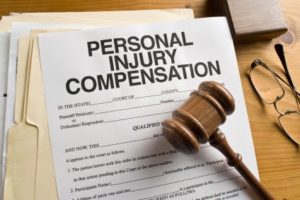Avoid making a common mistake like we have seen other injured people make if you are trying to handle your own accident or injury claim.
Common Mistake 1: Not Getting a Free Consultation With A Quality Lawyer
Personal injury attorneys like us offer a free consultation or case review about injury  claims. Find a good injury lawyer and talk to that person. Don’t miss the chance to get helpful free legal advice that will focus you on the important issues in your situation. People who don’t pick up the phone and call sooner rather than later often hurt themselves. Take the offered opportunity to learn about the claims process.
claims. Find a good injury lawyer and talk to that person. Don’t miss the chance to get helpful free legal advice that will focus you on the important issues in your situation. People who don’t pick up the phone and call sooner rather than later often hurt themselves. Take the offered opportunity to learn about the claims process.
Common Mistake 2: Giving a Recorded Statement
Insurance company claims adjusters almost always try persuade injured people into providing recorded statements. The statements are frequently given with no preparation or idea of the insurance company’s goal. The statements are, in part, a ploy to get a chance to have you say something the company can use against you. But, if you are dealing with your own insurance company (uninsured or underinsured coverage you bought) you might have a duty to cooperate that could include providing a recorded statement.
Common Mistake 3: Assuming the System Makes Sense
Personal injury accident laws and rules regularly change and evolve. Rules that made sense in the past can get pushed out by high-powered insurance lobbyists at the legislature. Or there might be a change in court interpretation of an old statute. The law has many complexities and nuances that a person not versed in the process just won’t know about. For example, the impact of section “41-1839” on a claim, whether the “made whole doctrine” applies, how the “duty to pay” plays out, whether “12-120(4)” or the “SLRA” is relevant., etc. etc. etc. The law presents a host of other issues.
This lack of knowledge leads to many mistakes by people dealing with their own case. Insurance company representatives work in the law everyday. They know when they are dealing with people who are unrepresented and use it to their advantage. In fact, lawyers who don’t specialize in injury claims can make many mistakes as well.
Common Mistake 4: Undervaluing or Overvaluing The Claim
Many years of practice have taught us clients often vastly undervalue or vastly overvalue their personal claims. It is a rare client who has a good sense of a potential verdict range. To understand your claim you have to understand injury law. If you undervalue your claim and ask for that low amount in settlement: the insurance company pays what you ask and keeps for itself what should be compensation for your losses.
It is a bit harder to understand the impact of asking for or “demanding” too much. Recognize that “too much” does not mean more than they are willing to pay. It means an unrealistic amount that indicates you do not have a legitimate sense of the value of the claim. When you show you don’t understand the claim’s value you are telling the company that you are also willing to settle for less than the value of the case. This is because you have shown you don’t know the value of the case. The ordinary insurance company response to over the top offers is to hold back money it would otherwise pay.
Common Mistake 5: Believing the Insurance Company Actually Made a “Final” Offer
One tactic insurance adjusters use is to present an offer as a “final offer.” In the company’s view, self-represented claimants present no real threat of a lawsuit against the insured person. The self-represented person does not have the ability to fulfill the threat. Because the carrier feels no exposure to risk, a claimant has no negotiating leverage. We have seen more than a few injured people take a carrier’s initial offer. This just leaves money in the coffers of the insurance company. You have a right to a fair recovery of the value of your injury. That is itself a complex question. Understanding when an offer really is the final “final offer” is one of the skills good injury lawyer develops with experience.
Common Mistake 6: Settling Before Your Injuries have “Seasoned”
There are insurance companies that have adopted the “get to the injured person and get some money on the table quick” approach. This is not an approach that exists because its fair or in you. It is mot often not in the injured person’s best interest. Especially if you are a seriously injured. A quick settlement will almost invariably get you less than the fair compensation you have a right to recover. The only way to provide an insurance company a reason to make a reasonable, or at least somewhat reasonable, offer, is to build your claim. This requires all of your medical bills and records. It frequently needs to be supplemented with a separate written opinion from a your doctor. Sometimes that opinion needs to come from a hired expert doctor who was not your personal physician.
Receiving fair value on a claim generally does not happen without a complete work up of the claim.
Common Mistake 7: Assuming the Insurance Company Will Accept What You Say Without Documentation
Medical records and other documentation play a central role in establishing your claim. Not getting this is one of those things that leads people astray. What the health care providers write in medical records, for good and for ill, are usually accepted in the settlement process as accurate. But your verbal statements after the fact are discounted and rejected if not backed up by medical documentation.
The primary rule is get the care you need. One perverse effect of this is that people who consume more medical care than they might otherwise are better protected in a claim because the medical records create a documentary history of the injury course.
Common Mistake 8: Not Understanding or Dealing with Liens and Subrogation Interests
The right to get paid back from a settlement is called a subrogation right. Health insurance and medical payments insurance generally a right to be repaid from your settlement proceeds. Some medical providers also have a right to be paid directly under Idaho law. These are the lien statutes. Having a lawyer who understands subrogation and lien issues has become ever more important to how much money the client actually gets to keep from a settlement. In some instances it is more important than how well the attorney negotiated the settlement.
Without that representation people regularly pay their health insurer (or the government/Medicare) far more than they are obligated to pay. Not paying these liens can get cause problems as can failing to make sure the greatest legal reduction is taken.
Common Mistake 9: Falling for the Notion that the Insurance Company Is Trying to Be Fair
Forget the advertising. Insurance companies are not your “Good Neighbors.” Claims adjusters do not have “Good Hands” that are there to take care of you. They have different goals than you do. Whether an insurance adjuster or an insurance company lawyer, they want to keep the corporate money in the corporation. The insurance company goal is to pay you as little as possible. The goal is not to treat you fairly.
Common Mistake 10: Not Getting Help from a Lawyer
Yes this is pretty much the same as number 1. We are happy to talk with you  about your claim and situation. Its free. Our lawyers generally handle serious injury claims. But but we are glad to talk to you about any potential claim you may have. Call us, ask us the important questions about your case, and find out if we can be of assistance to you in maximizing the value of your personal injury claim.
about your claim and situation. Its free. Our lawyers generally handle serious injury claims. But but we are glad to talk to you about any potential claim you may have. Call us, ask us the important questions about your case, and find out if we can be of assistance to you in maximizing the value of your personal injury claim.
You don’t need a lawyer in every car crash case. Certainly in smaller accident cases with minor, connective tissue injuries you may very well be as well off without an attorney as you are with one. But, in serious injury cases, there is really no question that you need a lawyer to protect your interests.


Nice tips on mistakes people make in handling their personal injury claim. Always hire a lawyer to make sure you do not run out of options.
Pingback: Why Get An Idaho Attorney For An Auto Accident or Personal Injury? (Podcast)
Thanks for pointing out that after you have been injured it’s smart to not give a recorded statement. My brother was recently hurt in a car accident. I think it would be smart for him to look into hiring a personal injury attorney that can help better know what to do.